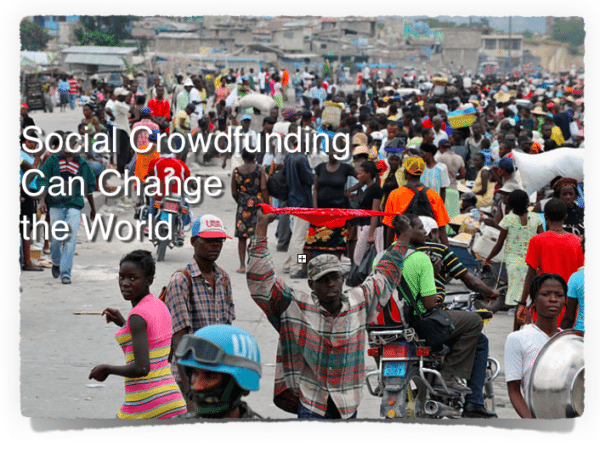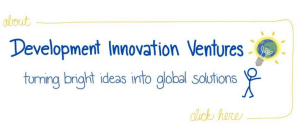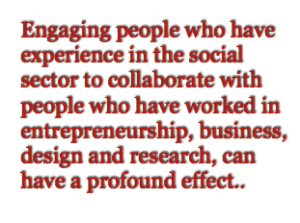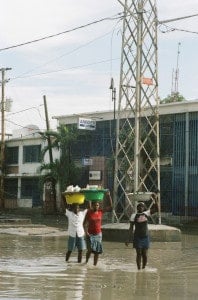Social enterprise is an entrepreneurial movement focused on combining good intentions with the business approach.
On a warm evening in November, I sat at a outdoor bar near St. Marc sipping a beer, waiting for my dinner and looking out on the ocean. I had spent a long day working in a hospital full of people who had been suddenly struck by an old disease that was new to Haiti: cholera had hit Haiti just two weeks earlier.
A group of people bustled into the bar, lugging equipment and talking amongst themselves. I quickly realized that it was the WASH (water sanitation and hygiene) cluster, the body responsible for stopping the outbreak and I was anxious to hear what they had to say. While some of them busied themselves with large jugs of water, chlorine tablets and a meter, the leader took aside the woman she was sending to the north to coordinate the distribution of water purifying tablets and said plainly: ‘We aren’t ahead of the outbreak and we aren’t going to get ahead of it.’ I was shocked by this admission of failure at what was still an early juncture. What, fundamentally, was stopping them?
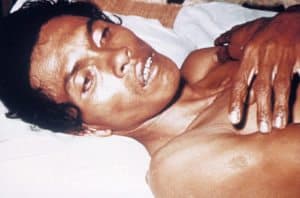 The beer I had finished was brought in from the capital and could have made its way over the bumpy roads to every corner of the country. Women selling brightly colored packets of sweets sold products made by manufacturers hundreds or thousands of miles away. If there are supply chains that cross the country, why can’t they be used to deliver this life-saving product that people were so desperate to have? And why can’t the people desperate for work be the ones to deliver it? Not just in a Haiti, but across the world?
The beer I had finished was brought in from the capital and could have made its way over the bumpy roads to every corner of the country. Women selling brightly colored packets of sweets sold products made by manufacturers hundreds or thousands of miles away. If there are supply chains that cross the country, why can’t they be used to deliver this life-saving product that people were so desperate to have? And why can’t the people desperate for work be the ones to deliver it? Not just in a Haiti, but across the world?
Part of the answer is that international aid doesn’t think like that. But then, the international aid system is broken with billions of dollars pouring in and very few results coming out. We still have a billion people without access to clean water and 2.5 billion without sanitation. Every year, millions still get sick and die from diseases eliminated in the rest of the world in the 1800’s. Today, three and a half years after the outbreak started, Haiti is still suffering from cholera. Government agencies and international NGOs have resources and staff but can be plodding and infuriatingly inefficient. Local NGOs have deep local knowledge but are underfunded, understaffed and overly reliant on capricious international donors.
 Many programs are run with the best of intentions but use top heavy approaches that are barely able to be responsive to local conditions. USAID has started to acknowledge this with their new DIV program. They invest in companies and organizations that are working to solve international development and humanitarian problems and in so doing have started to shift the focus of US foreign aid dollars from business as usual to testing and scaling new projects.
Many programs are run with the best of intentions but use top heavy approaches that are barely able to be responsive to local conditions. USAID has started to acknowledge this with their new DIV program. They invest in companies and organizations that are working to solve international development and humanitarian problems and in so doing have started to shift the focus of US foreign aid dollars from business as usual to testing and scaling new projects.
 Social Enterprise
Social Enterprise
There is a movement underfoot to fundamentally change international development and humanitarian aid. Social enterprise is an entrepreneurial movement focused on combining good intentions with the business approach of companies like PepsiCo, Danone and Unilever in selling products to customers in the developing world. These companies offer a product that people want, make it easy for them to get it and make a profit for everyone along the distribution chain. For social enterprises to be successful in international development, it is necessary that they also learn lessons from the tech startup community about launching quickly, iterating and scaling what works.
 Power of the Crowd
Power of the Crowd
Combining social impact with a financially viable business is more easily said than done. Creating a genuine combination of social purpose and financial motive requires bringing together people from both sectors- people who rarely work together on the same problem.
Engaging people who have experience in the social sector to collaborate with people who have worked in entrepreneurship, business, design and research, can have a profound effect on changing the conversation about how to build lasting and sustainable organizations. In November 2013, the Archimedes Project did just that. We brought together leaders of several major Haitian water organizations with professionals and students from across sectors to design a social enterprise that could reach scale across Haiti. The enterprise builds on collaborations with local NGOs and civic organizations, 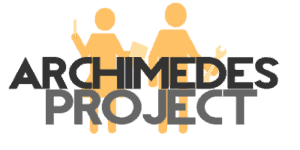 employs local talent and deploys an affordable and easy to use product that is locally produced. The enterprise this collaborative process created, Community Chlorinators, will launch in Haiti in July and will use the model I had wondered about in the bar that day – it will give Haitians desperately needed employment opportunities while distributing a vital product to their communities to end cholera.
employs local talent and deploys an affordable and easy to use product that is locally produced. The enterprise this collaborative process created, Community Chlorinators, will launch in Haiti in July and will use the model I had wondered about in the bar that day – it will give Haitians desperately needed employment opportunities while distributing a vital product to their communities to end cholera.
Bringing together social impact with a financially viable business is more easily said than done. Creating a genuine combination of social purpose and financial motive requires bringing together people from both sectors, people who almost never work together on the same problem.
 Social Crowdfunding Can Be A Powerful Tool
Social Crowdfunding Can Be A Powerful Tool
Now that this crowdsourced idea has been formed and a plan to launch it is in motion, the Archimedes Project will be turning back to the crowd to help fund it. Social crowdfunding is a particularly powerful seed funding tool for organizations with a social mission but a yet-to-be proven business model. With a strong and compelling social mission, organizations can reach out directly to funders, communicating intended impact and the plan for sustainability. In addition to gathering financial support, social crowdfunding encourages the inclusion of new voices and ideas in the conversation about how to build and expand sustainable humanitarian enterprises.
The Archimedes Project, and the social enterprises it launches, are the embodiment of, and will be a testament to, the power of the crowd to act as a game changer. We are working hard towards a world where there are no outbreaks to speak of.
____________
 Faith Wallace-Gadsden is the founder and director of the Archimedes Project. Trained as a molecular microbiologist, she has seen the effect of cholera on the ground in Haiti and Bangladesh. She is dedicated to stopping the spread of waterborne disease by finding scalable, sustainable, market based solutions that provide water to a billion people and sanitation to 2.5 billion.
Faith Wallace-Gadsden is the founder and director of the Archimedes Project. Trained as a molecular microbiologist, she has seen the effect of cholera on the ground in Haiti and Bangladesh. She is dedicated to stopping the spread of waterborne disease by finding scalable, sustainable, market based solutions that provide water to a billion people and sanitation to 2.5 billion.


